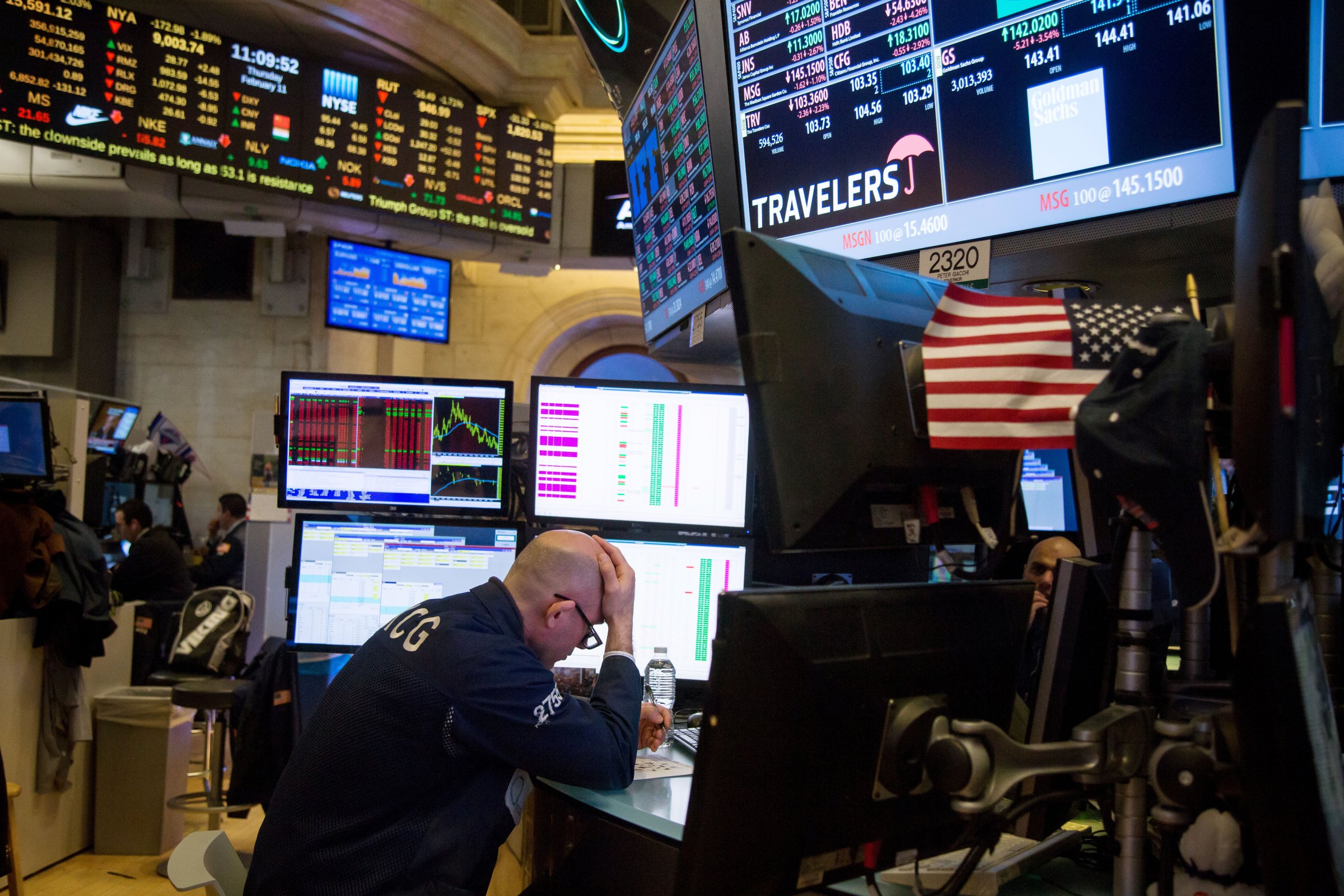
It’s been a rough year for investors, and it’s just getting started.
The S&P 500 Index has plunged 10.5% since the first trading day of 2016, erasing $1.78 trillion in value for investors, says S&P’s Richard Peterson, a senior director of Global Markets Intelligence. On average, investors have lost a collective $57 billion per trading day this year. Ouch.
That’s roughly equal to the GDP of Canada in 2014, according to the World Bank.
The number appears as the S&P 500 extended its losses for the fifth straight day Thursday, falling 1.23% and closing at 1,829.08 Thursday—its lowest since April 2014. The Dow Jones Industrial Average dropped nearly 255 points, or 1.6%. The technology heavy Nasdaq was the relative winner for the day, down just 0.39%.
The drop in the S&P 500 on Thursday was led by a plunge in the shares of Mylan. The drugmaker’s stock fell 18% after announcing plans to buy Swedish pharmaceutical company, Meda. For the year, the S&P 500 has been led downward in 2016 by financials, consumer discretionary, and information technology sectors, posting declines of 15%, 12%, and 12% respectively.
The biggest losses in value, year-to-date, can be attributed to Amazon, which has seen a loss of $85.9 billion year-to-date, Bank of America with a loss of $64.2 billion, and Alphabet, which saw $50.9 billion erased.
Global economics have also played a part shaking investor confidence: Jitters about growth in the Chinese economy have reverberated across global markets as oil prices continue to fall, with no OPEC deal in sight.
Now some are beginning to wonder if the relationship between the economy and the market will flip. Will the drop in the stock market because of the huge loss of wealth drag the U.S. economy into a recession? Some economist believe that lower stock market values cause people to spend less, which is the so called wealth effect. Others have argued that drops in the stock market really don’t impact spending. What’s more, the $1.75 trillion drop comes after years of gains for investors, in which the stock market value of U.S. corporations rose from $14.9 trillion at the end of 2009 to a peak of nearly $23 trillion in the middle of last year.
Unfortunately, we may get to see which side of that argument is right.
More Must-Reads from TIME
- Donald Trump Is TIME's 2024 Person of the Year
- Why We Chose Trump as Person of the Year
- Is Intermittent Fasting Good or Bad for You?
- The 100 Must-Read Books of 2024
- The 20 Best Christmas TV Episodes
- Column: If Optimism Feels Ridiculous Now, Try Hope
- The Future of Climate Action Is Trade Policy
- Merle Bombardieri Is Helping People Make the Baby Decision
Contact us at letters@time.com